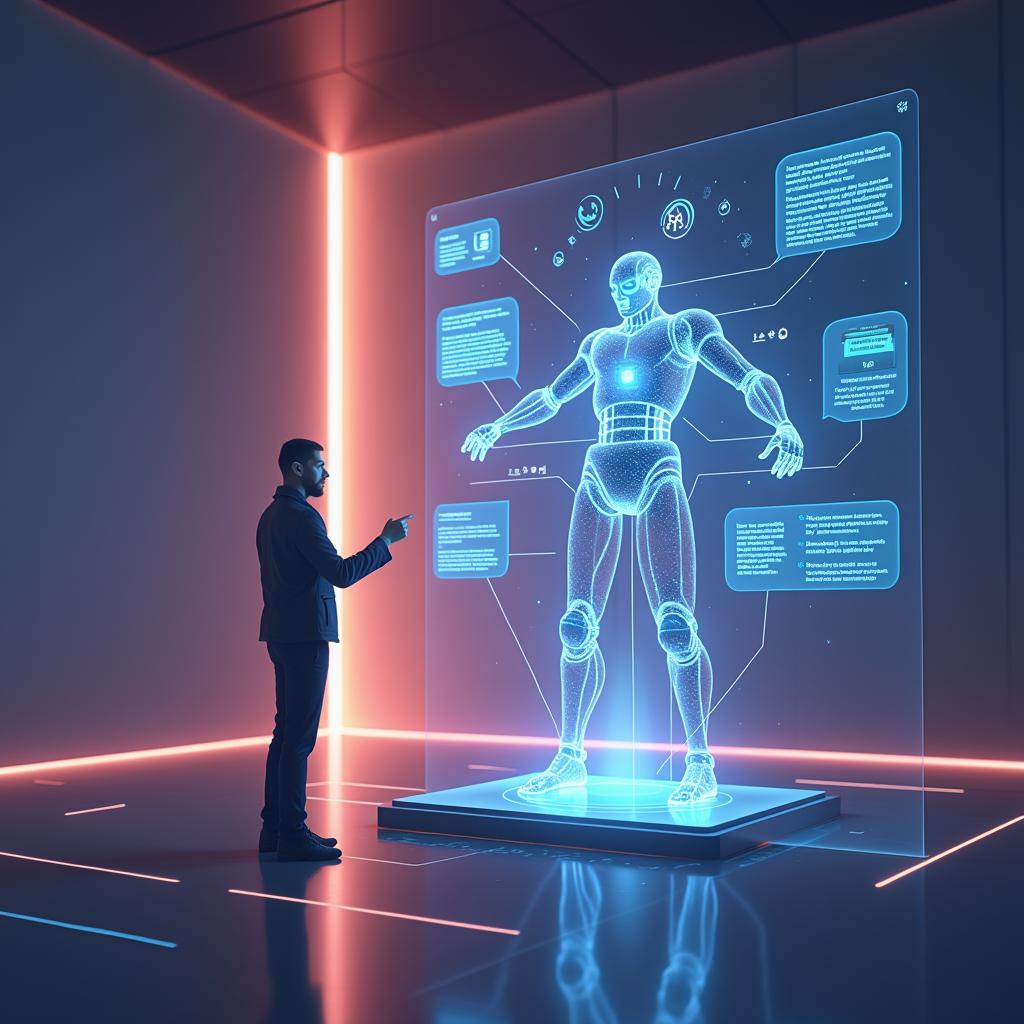Why is artificial intelligence the driving force of modern e-commerce?
When I look back at how online commerce has evolved over the past 20 years, I'm fascinated by the speed with which technology transforms the way we sell and buy. As CEO of Sintonai, I've dedicated my career to discovering how artificial intelligence applications can solve real-world challenges and boost ecommerce sales.
AI Agent for your business FREE
For a limited time only! Try it for free! SintonaiMaximize your sales, reduce your costs, and improve your customers' experience with our intelligent chatbots.
Today I want to share with you some tips and examples of how AI can help you improve conversion and customer service in your online store. Because, if I'm clear on one thing, it's that adopting smart solutions is no longer optional: your competitors are using them, and the difference between standing out or disappearing will lie precisely in your capacity for innovation.
Artificial intelligence applications are systems capable of analyzing data, learning from it, and making automatic decisions or suggesting optimal actions. In e-commerce, this translates into conversational assistants, recommendation engines, chatbots, and predictive analytics platforms. Their goal is clear: to get users to buy more and more quickly, so you can focus your energy on growing, not putting out fires.
Recently, a Gartner study revealed that 751% of digital retailers already use some form of artificial intelligence to personalize experiences or improve customer service. The trend doesn't stop there: it's estimated that by next year, the figure will exceed 851% of digital retailers.
The real potential lies not only in automating processes, but in detecting sales opportunities, anticipating customer needs, and reducing response times. Imagine a user browsing undecided between several products, and then receiving a personalized suggestion or an immediate answer about stock. That's AI at work for your e-commerce.
At Sintonai, we bring artificial intelligence to the heart of customer service. Personally, one of my biggest challenges has been designing AI applications that are easy to implement, even for teams without advanced technical backgrounds. And that's our passion: bringing this technology to the table so that any company, large or small, can sell more and provide better service.
Let's imagine this: an online store receives hundreds of inquiries daily about sizes, shipping, and returns. Hand-delivering answers slows your growth and drains your resources. This is where we come in: with Sintonai, our chatbot automatically responds to these frequently asked questions, handling peaks of up to 500 messages in just a few minutes and maintaining customer satisfaction above 90%. For a limited time only! Try it for free! SintonaiMaximize your sales, reduce your costs, and improve your customers' experience with our intelligent chatbots.
But it's not all automation: our platform learns as it goes, detects patterns in questions, and alerts you if something could affect your sales. We've seen conversions increase by resolving questions in less than a minute. Want to check it out? You can try our AI solution with 500 free messages from the web: create an account here.
The theory sounds good, but let's see how it translates into practice. Imagine an online sportswear store: it detects that many customers are asking about the difference between two fabrics. Sintonai's chatbot not only answers, but can also suggest the most suitable product based on the customer's climate.
Another example: a tech gadget store notices a sudden increase in questions about a new release. Our AI identifies the trend and, based on the data, recommends highlighting the item on the homepage and even adjusting stock before it runs out.
I've also helped companies reduce returns by training the bot to advise on sizes or technical compatibility before completing the purchase. In all these cases, artificial intelligence applications have been key allies in maximizing sales and satisfaction, while human teams can focus on higher-value tasks.
We live in the age of data. According to Statista, the global e-commerce AI market will be valued at nearly $24 billion by 2027. From 24/7 virtual assistants to hyper-targeted recommendations, personalization will be key to customer loyalty in the coming years.
While automation is essential, digital empathy is gaining ground. 70% of customers expect to feel like they're dealing with a brand that understands their needs in real time. Artificial intelligence applications already enable this level of personalization, achieving fluid, tailored responses for each individual.
My advice: experiment early, analyze results, and don't be afraid to adjust your strategy. Trying Sintonai is simple and risk-free, thanks to our free demo of 500 messagesDiscover firsthand how AI can take your ecommerce to the next level. No, but it can handle most common queries, freeing up human resources for complex or strategic tasks. — Manuel Jurado, CEO of Sintonai
What are artificial intelligence applications and how are they transforming e-commerce?
How I use AI at Sintonai to help businesses grow
AI Agent for your business FREE
Practical examples: how an e-commerce business can benefit from artificial intelligence applications
Trends and data you can't ignore about AI in e-commerce
Frequently asked questions about artificial intelligence applications in e-commerce
What advantages do artificial intelligence applications offer over traditional systems?
What types of e-commerce can benefit from artificial intelligence?
How can I start using artificial intelligence applications in my e-commerce?
What sets Sintonai apart from other AI providers?
Can artificial intelligence completely replace human attention?







